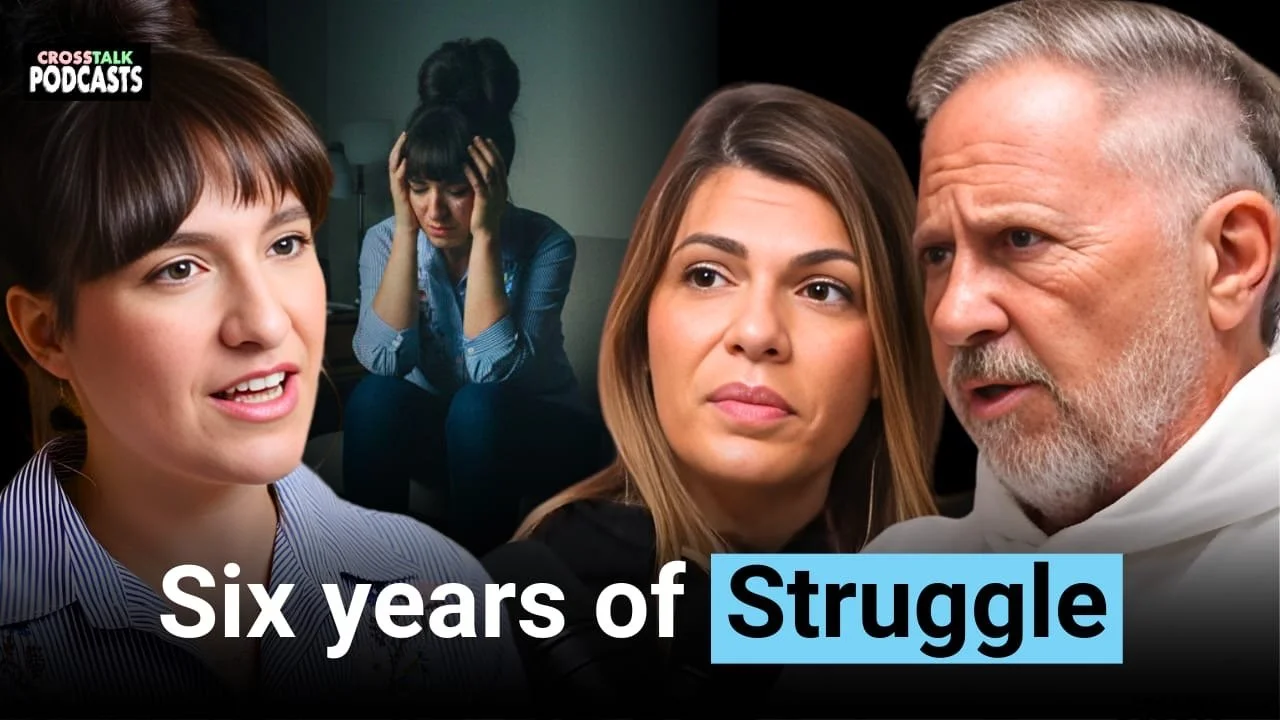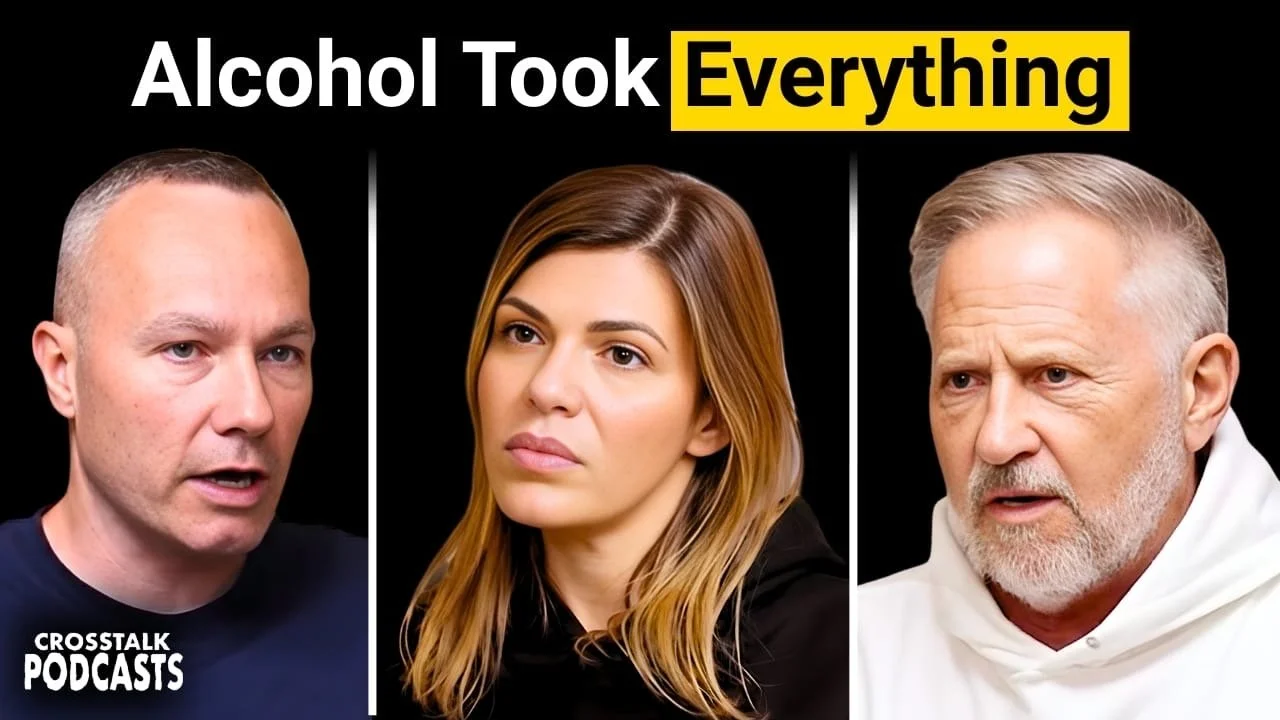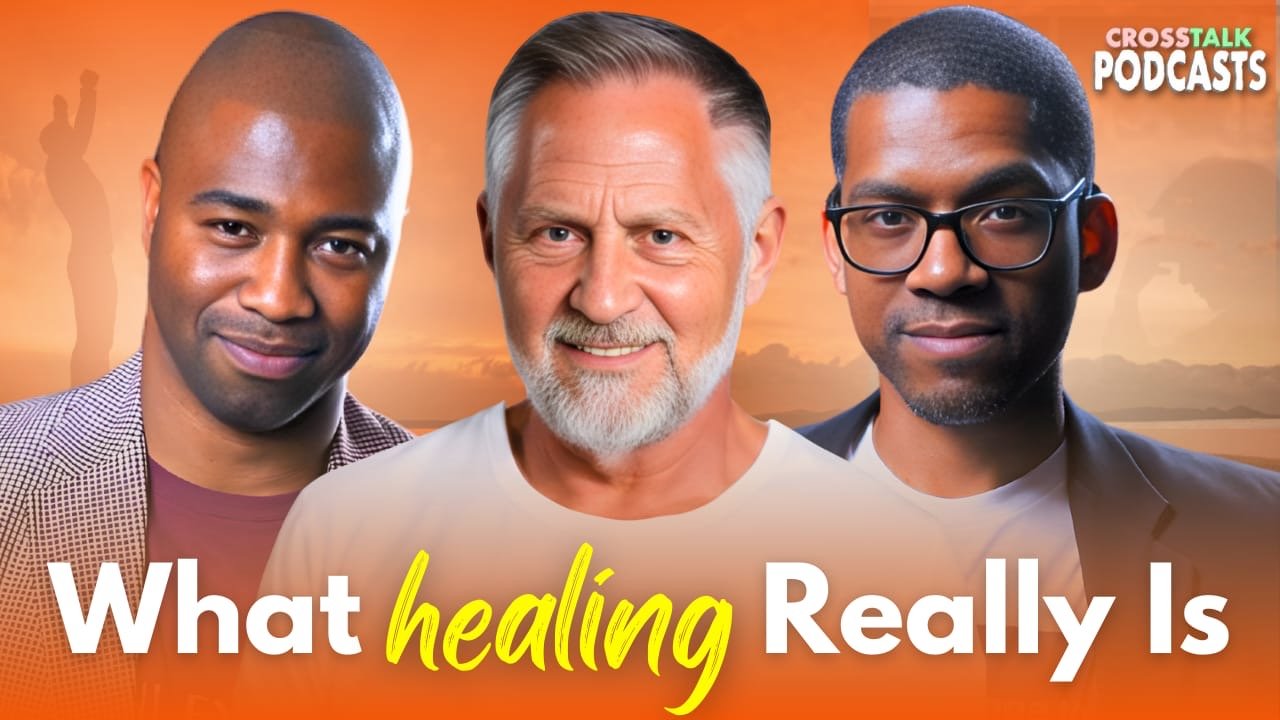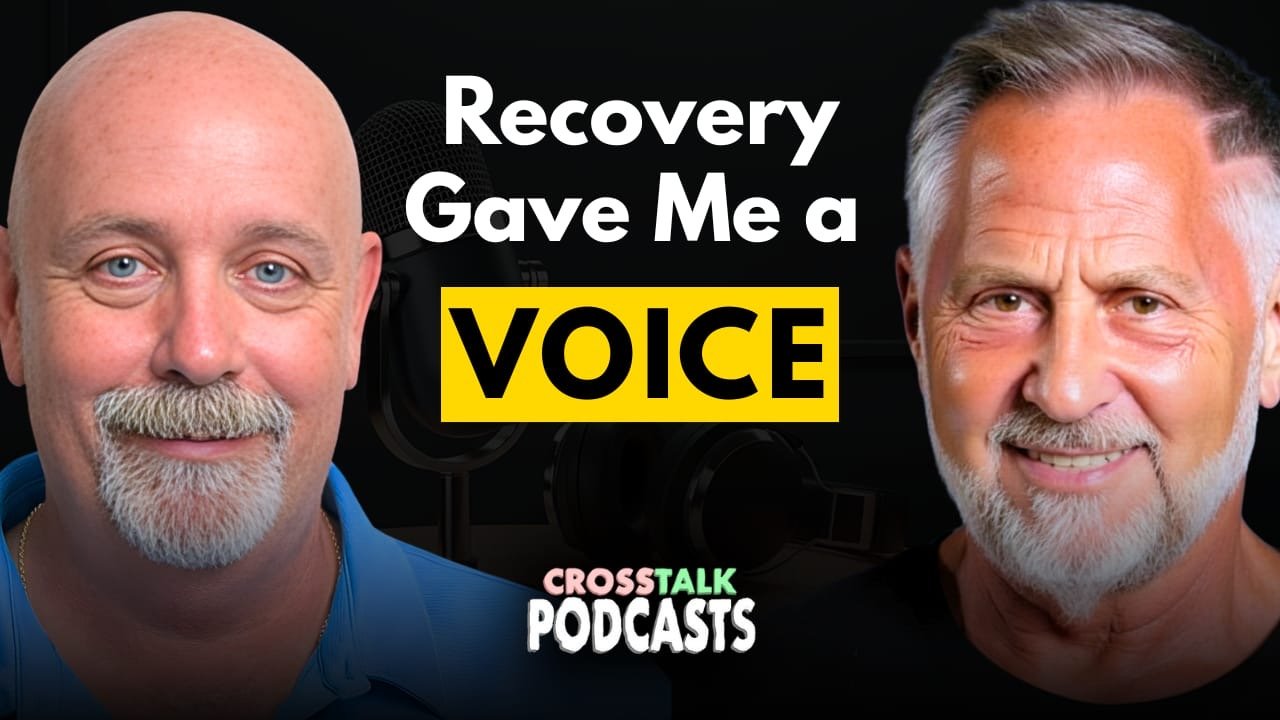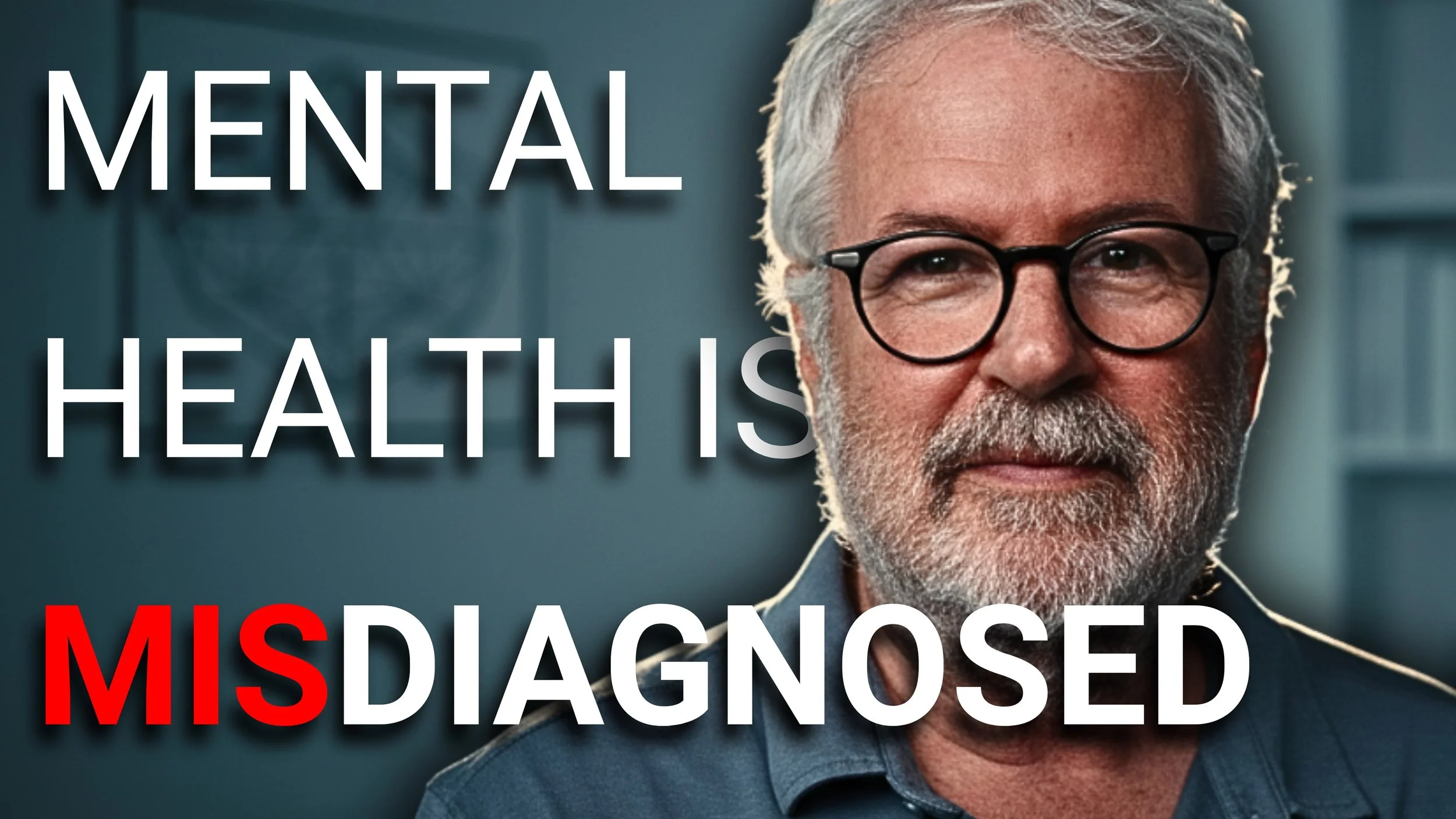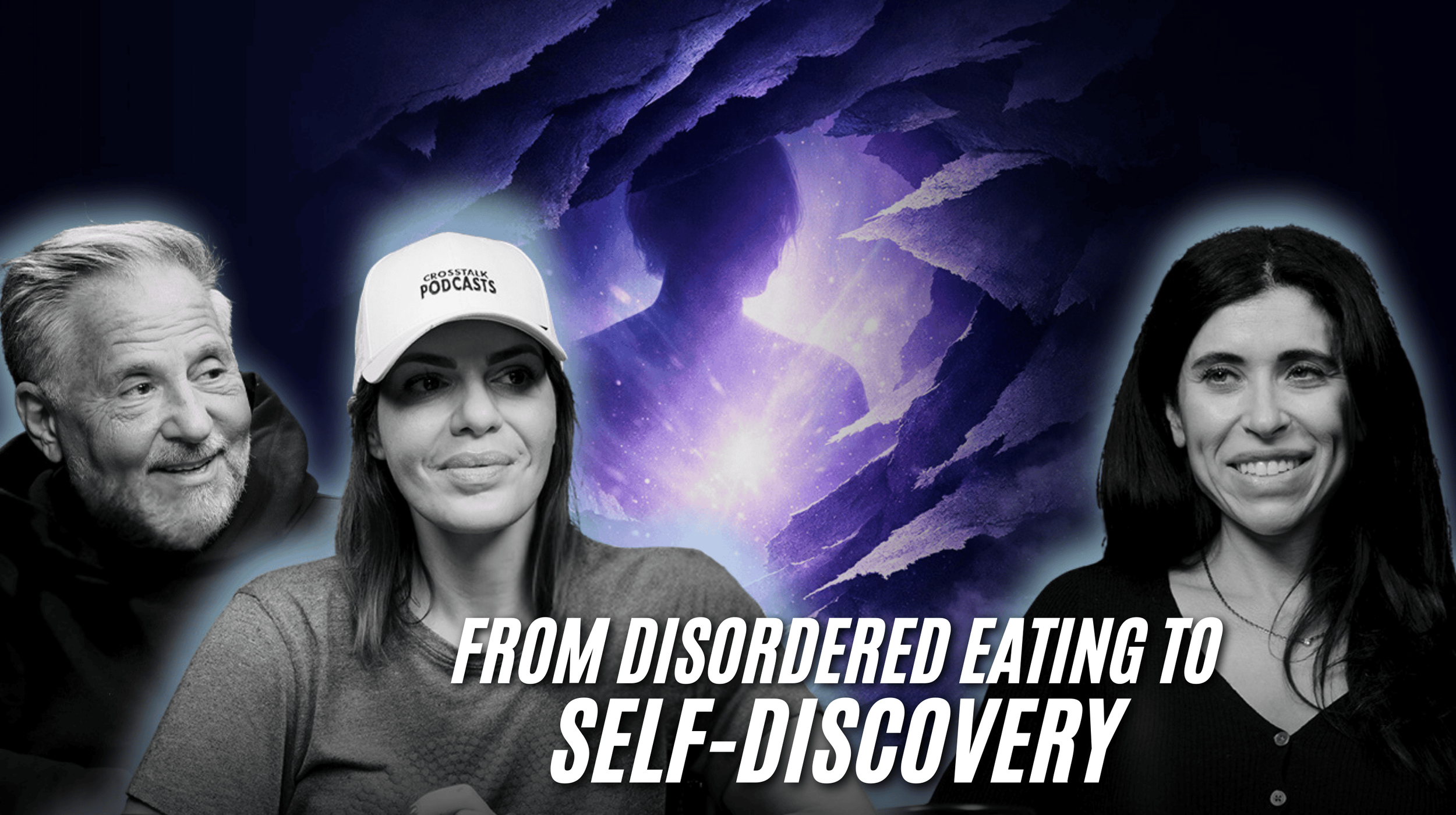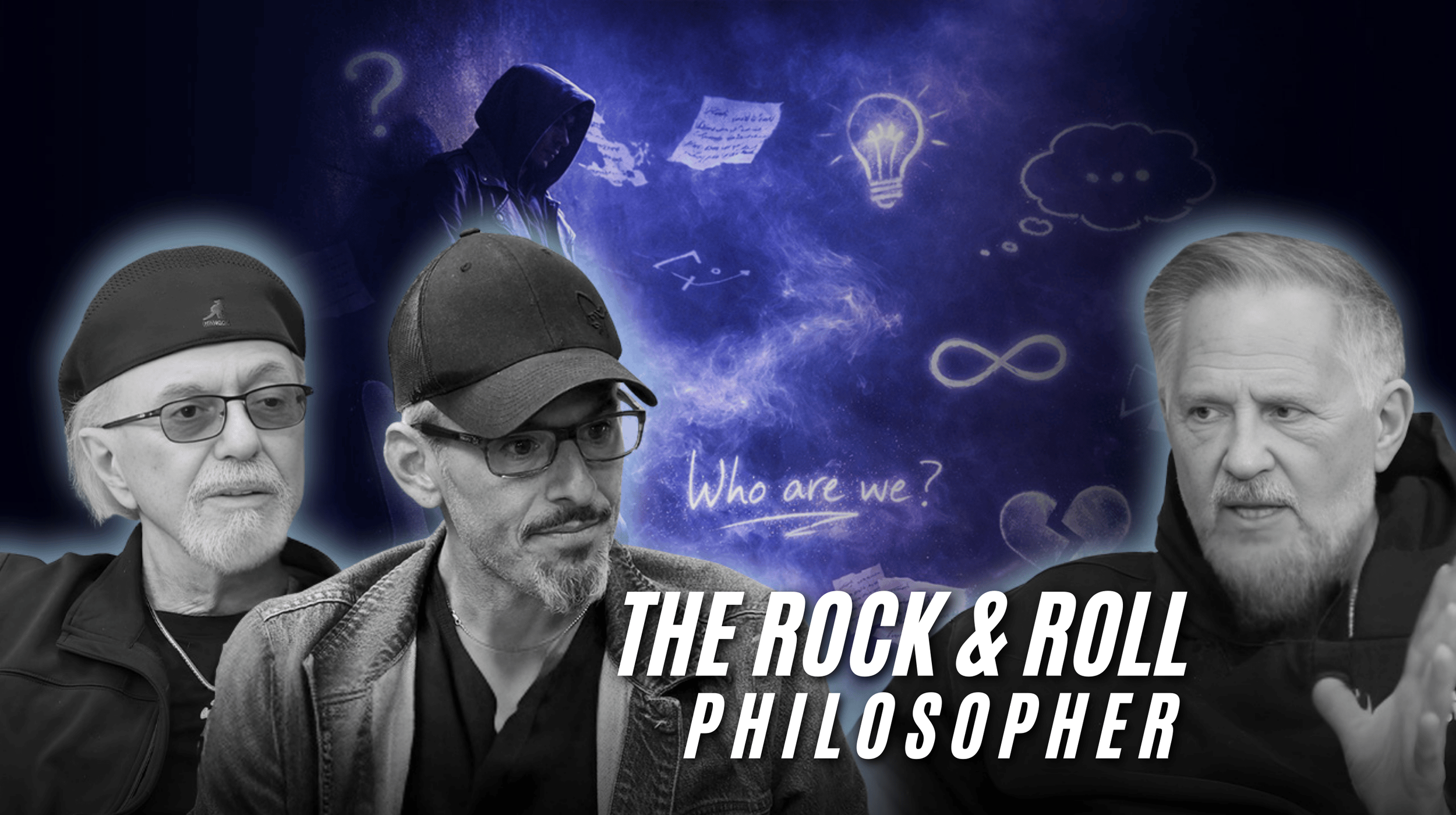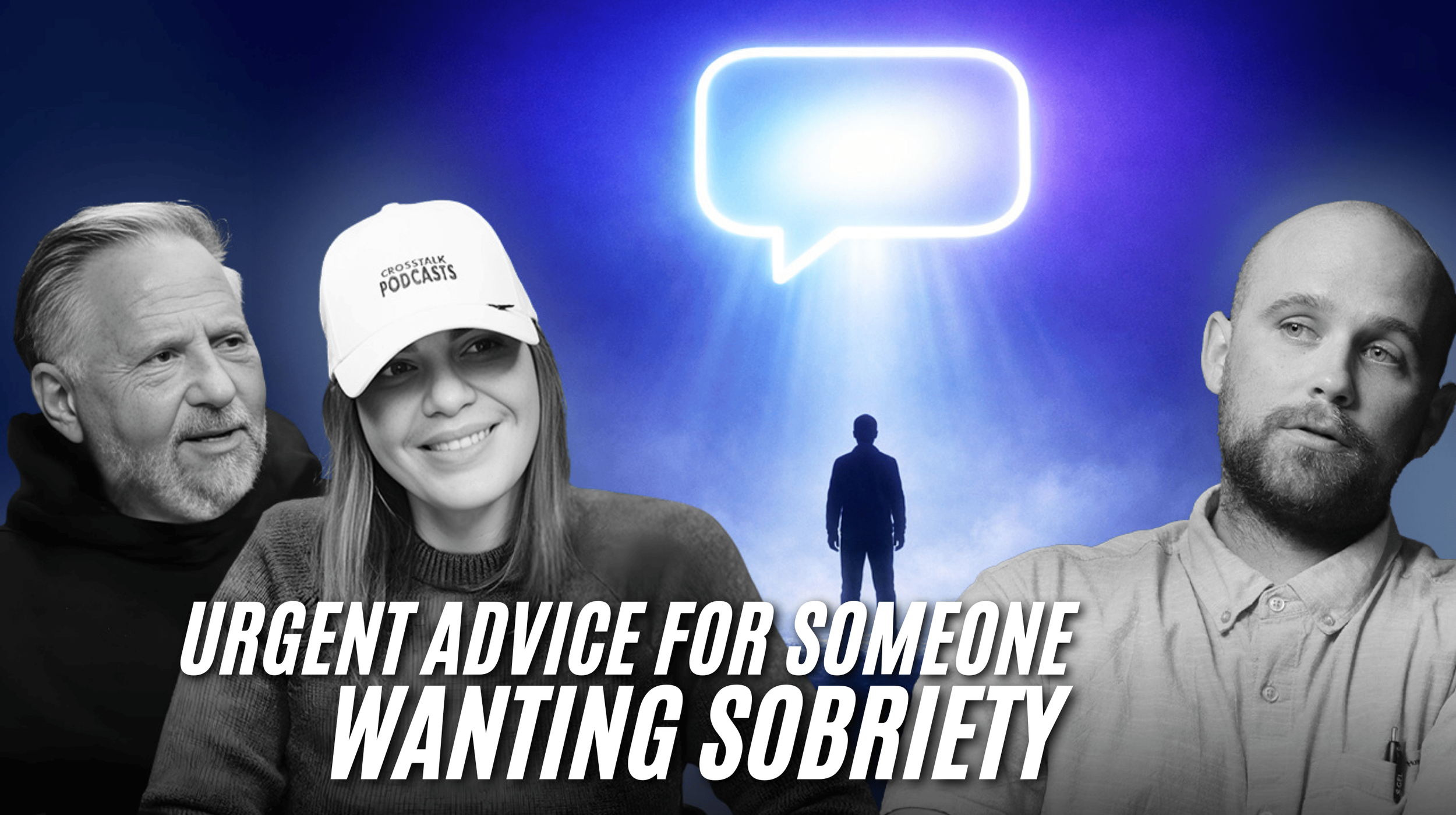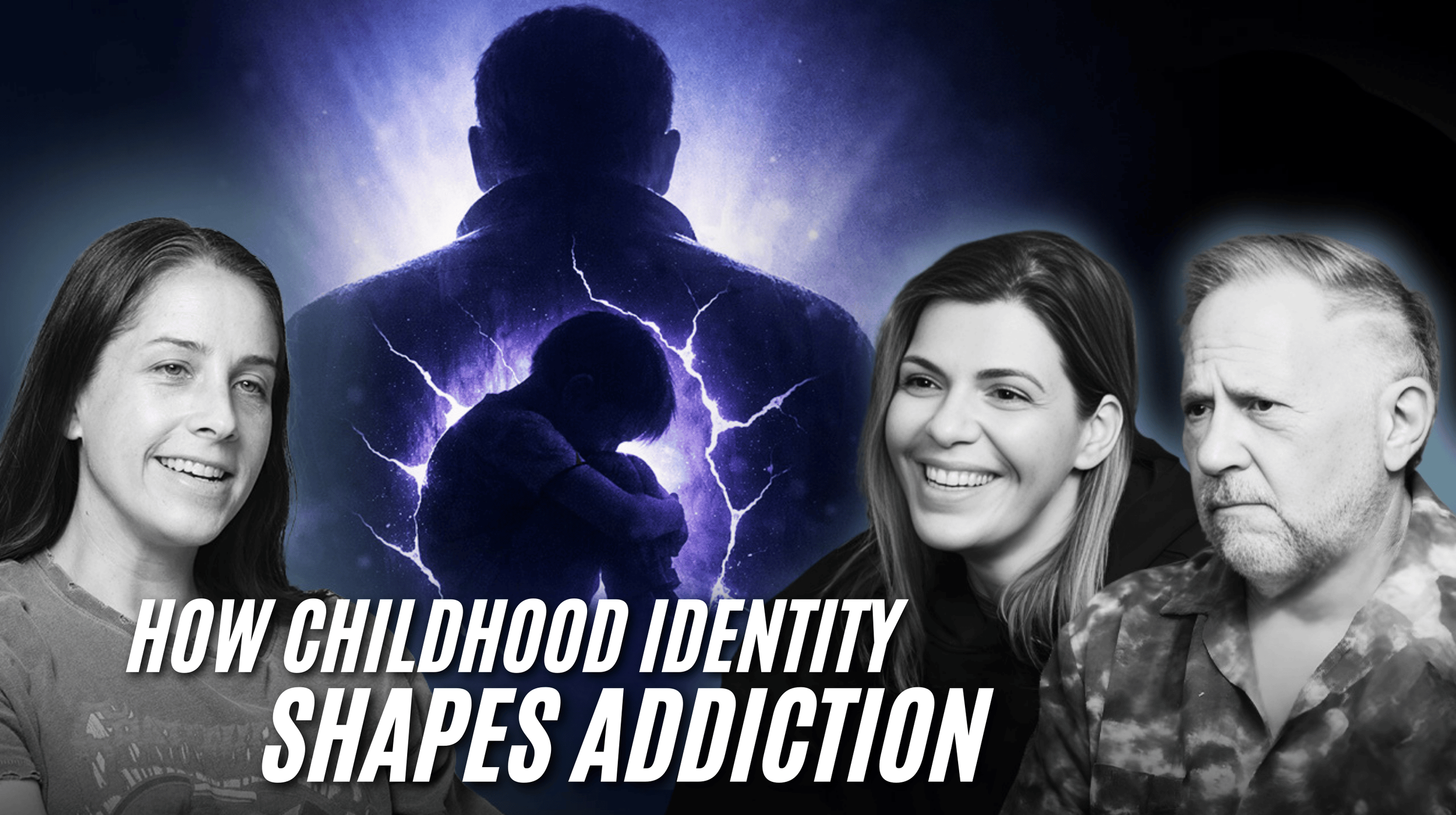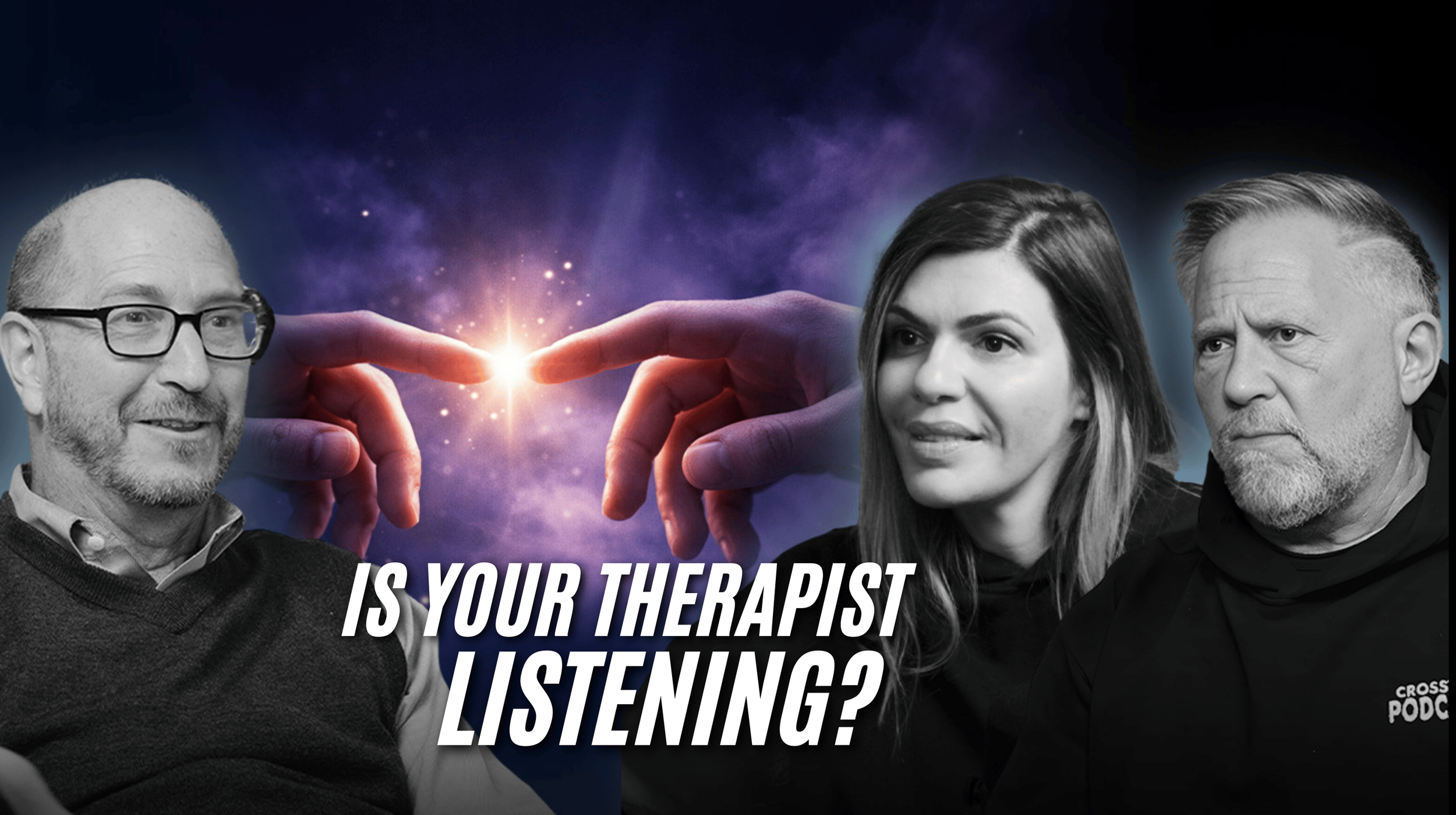Is "Stopping" the Same as "Recovering"? | Faust R.
Listen or watch on your favorite platforms
Clinical psychologist Faust Ruggiero shares insights from over 40 years of counseling individuals, couples, and families struggling with addiction, trauma, and recovery. Faust explores why addiction thrives in secrecy, how family dynamics impact recovery, and why honesty and connection are at the heart of lasting change.
Facing the Roots of Addiction: Why True Recovery Means More Than Sobriety
For over four decades, psychologist Faust Ruggiero has helped people confront the emotional and psychological roots of addiction — and his approach goes far deeper than simply getting sober. In this powerful Crosstalk Podcast episode, Faust sheds light on why real healing only begins after the substance is gone, and how the unspoken emotional wounds — the undercurrents — continue to shape our behavior until we face them head-on.
Early Life and the Seeds of Awareness
Faust’s decades of counseling have given him a front-row seat to human pain — but also human resilience. Growing up and working in an era where stigma was overwhelming, he witnessed how silence shaped lives. “The word anonymous was attached because the stigma was enormous,” he says, describing how secrecy around addiction once defined both individuals and families. This early awareness fueled his lifelong mission: to bring compassion, clarity, and honesty into spaces where shame had once dominated.
The First Encounters with Addiction
In his early professional years, Faust noticed a recurring truth: most people tried to fight addiction alone. “If you could’ve done it alone, you would have,” he tells listeners. Whether it was alcohol, drugs, or behavioral addictions, people clung to secrecy — afraid of judgment, yet desperate for relief. He saw that the problem wasn’t just the substance; it was the inner dialogue — guilt, fear, and loneliness — that kept people trapped. “The thing you don’t talk about… is the thing that’s going to come back and haunt you later on.”
Living in the Grip of Addiction
Through years of counseling, Faust saw addiction not just as a chemical dependency but as a way of living in pain. “When we get uncomfortable, we look for something to quickly change that,” he explains. In addiction, that quick fix becomes a survival mechanism — a way to avoid what’s really hurting inside. He witnessed how this avoidance rippled through families: parents enabling, spouses hiding, children carrying quiet guilt. Everyone played a part, knowingly or not. “We all change when there’s an addict in the family,” he says. “A healthy family member is much more able to deal with someone who’s struggling.”
Hitting Bottom: The Turning Point
The lowest point, Faust says, isn’t just when someone loses everything — it’s when they finally see themselves clearly. Many people arrive in his office broken and defensive, believing they’ve tried everything. “Be willing to get humble,” he advises. “You can’t water it down at all.” For some, that bottom is external — the DUI, the broken marriage, the health scare. For others, it’s internal — a moment of crushing self-awareness that says, I can’t live like this anymore. It’s the moment when denial breaks and vulnerability begins.
Getting Help: A New Kind of Work
Recovery, Faust stresses, isn’t just about putting down the substance — that’s only the beginning. “The first steps of recovery just get you sober. Now the work begins.” He calls it addressing the undercurrents — the lingering emotional currents of trauma, loss, and shame that run beneath the surface of every addiction. He encourages collaboration between counselors, sponsors, and families, describing his own approach as “a tag team on people” to ensure accountability and support. “If everyone used this program,” he says of the 12 steps, “life would be much different. My day is about humility, surrender, and gratitude — every day.”
Life Today: Healing and Helping Others
At 70, Faust continues to counsel clients, write books, and share his experience online. He embodies the lifelong process of recovery — not as an endpoint, but as a daily practice of honesty, connection, and humility. His story reminds listeners that addiction doesn’t define a person; how they respond to it does. “Go and listen to other people,” he tells anyone contemplating recovery. “Be willing to open your mind and heart. The healing starts when you stop running from yourself.”
Today, Faust lives in eastern Pennsylvania, helping individuals and families reclaim their lives from addiction, trauma, and emotional pain. His message is clear and timeless: recovery isn’t about perfection — it’s about progress, truth, and learning to live in peace with yourself.
FAQs
Why is it dangerous to try to recover from addiction alone?
Because isolation fuels denial — real recovery happens through honesty, connection, and community.What does Faust mean by “undercurrents” in addiction?
He refers to the emotional and psychological traumas that lie beneath addiction and drive self-destructive behavior.Can family members contribute to someone’s recovery?
Yes. Healthy, educated family members can provide vital support — but they must also work on their own behaviors and boundaries.Why does relapse often happen after years of sobriety?
Unresolved emotional pain or overconfidence can trigger old coping patterns, especially during stress or major life changes.How can someone begin seeking help today?
Start by talking — to a therapist, a sponsor, or even someone in recovery. The first step is honesty and willingness to listen.
Related episodes
ABOUT CROSSTALK
CROSSTALK reveals real stories of everyday people and notable figures, sharing their journeys from struggles to life-changing 'aha' moments with all kinds .


 Spotify
Spotify





